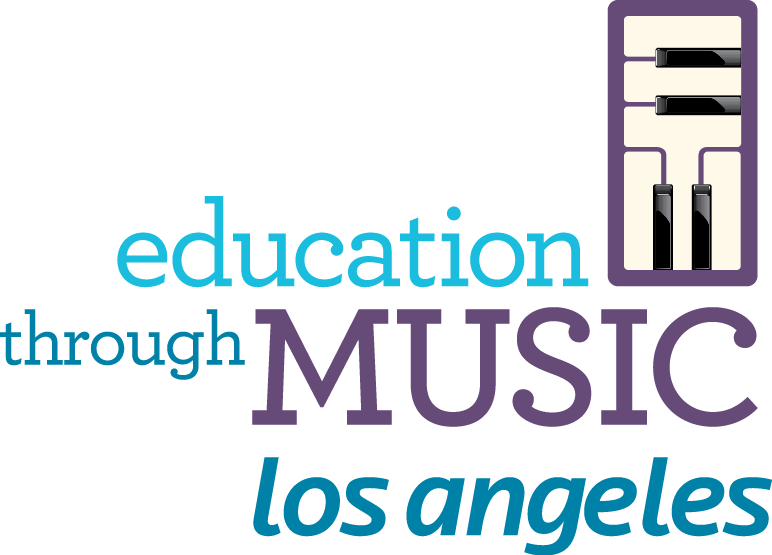Better Core Learning Skills
Children’s music education has even been linked to better reading, writing and mathematical skills (Hallam, 2010).

If you wish to direct your donation to a specific purpose or to donate in someone's honor, please indicate in the memo. Tax receipts will be mailed within one week.

ETM's federal tax identification number (EIN) is 13-3613210. To donate through your fund, instruct your donor-advised fund to mail a check to "Education Through Music, Inc." to: 122 East 42nd St., Suite 1501 New York, NY 10168. Or, if your account is with Fidelity or Schwab, use the form below to make an online request to your institution.
Contact ETM at development@etmla.wpengine.com or 212-972-4788 to request account information to initiate a transfer of stock or securities.
Support future success by including "Education Through Music, Inc." in your Estate Planning. Education Through Music, Inc., is a not-for-profit corporation incorporated in New York State; has federal tax identification number (EIN) 13-3613210; and is located at: 122 East 42nd St., Suite 1501 New York, NY 10168.
For information on including ETM in your own will, trust, retirement plan, life insurance policy, or other planned gift options, contact us at development@etmla.wpengine.com or 212-972-4788.





Children’s music education has even been linked to better reading, writing and mathematical skills (Hallam, 2010).
Music education in childhood has been linked to boosts of seven points on IQ scores during childhood (Schellenberg, 2004), and this effect has shown to last beyond high school graduation (Schellenberg, 2006).
Statistics are sourced from Americans for the Arts
![]() as likely to graduate than those who do not
as likely to graduate than those who do not
![]() more likely to win an award for school attendance
more likely to win an award for school attendance
![]() as likely to be recognized for academic achievement
as likely to be recognized for academic achievement
Kids who are involved with the arts have higher grades and are less likely to drop out of school (Ruppert, 2009).
Kids who play musical instruments are likely to have higher self-esteem, confidence, discipline, concentration, and emotional intelligence than kids who don’t play instruments (Hallam, 2010).
Hallam, S. (2010). The power of music: Its impact on the intellectual, social and personal development of children and young people. International Journal of Music Education, 28(3), 269-289.
Ruppert, S. S. (2009). Why schools with arts programs do better at narrowing achievement gaps. Education Week, 29(5).
Schellenberg, E. G. (2006). Long-term positive associations between music lessons and IQ. Journal of Educational Psychology, 98(2), 457.
Schellenberg, E. G. (2004). Music lessons enhance IQ. Psychological Science, 15(8), 511-514.
Education Through Music-Los Angeles is an independent 501(c)3 nonprofit based on the ETM model which began in New York City in 1991. ETM-LA continuously evaluates the effectiveness of its programs in Los Angeles to increase its impact and identify ways to better serve schools. The reports below reflect outcomes of the ETM programs in Los Angeles and New York City.
93% of surveyed classroom teachers at ETM-LA partner schools agree that music education has supported overall improvements in self-confidence and self-esteem.
86% of surveyed teachers agree that music instruction has led to increased attentiveness and focus among students.
ETM-LA’s music instruction has become a crucial part of the curriculum in all partner schools.
ETM-LA’s music education has led to increased student interest in school.
of classroom teachers agreed that the music program increases students’ literacy, math, and critical thinking skills.
of principals rate the music program as “excellent”.
of 3rd through 8th grade students reported that music class helped them learn to focus their attention.
Education Through Music-Los Angeles is an independent 501(c)3 non-profit based on the ETM model, which has shown deep benefits to children and their school communities. These reports reflect outcomes of the ETM model.